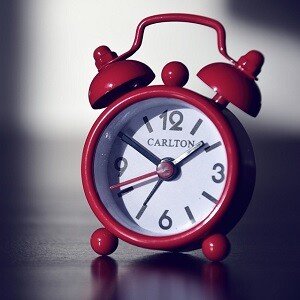Cases of Depression Rise as Clocks Go Back
November 1, 2016 - Smart TMS

Consequences of Daylight Saving Adjustment
The clocks went back this weekend, going from British Summer Time to Greenwich Mean Time.
With the arrival of cooler weather and earlier dush, it definitely feels like winter is finally here and for some people, the change can be a real struggle.
Danish researchers have demonstrated that the number of cases of depression rises massively after the clocks go back in autumn.
The study looked at 185,419 cases of depression from 1995-2012 and found a regular spike after the clocks changed which was described as:
“…too pronounced to be coincidental.”
Some patients’ depression required hospital treatment as it was so severe. In fact, depression cases at hospital rose 8% at the end of daylight saving time.
Yet researchers said the psychological effect would apply to all levels of depression, not just severe cases.
Why Depression Rises After the Clocks Change
The sudden onset of darker nights and shorter days is thought to be the principal reason for the rise in depression after clocks go back. However, another factor is negative thoughts that the clocks changing marks the start of winter gloom – with shorter days and less pleasant weather.
Professor Seren Ostergaard, from Aarhus University Hospital in Denmark, explained:
“We probably benefit less from the daylight in the morning between seven and eight, because many of us are either in the shower, eating breakfast or sitting in a car or bus on the way to work or school.
“When we get home and have spare time in the afternoon, it is already dark.
“Furthermore, the transition to standard time is likely to be associated with a negative psychological effect as it very clearly marks the coming of a period of long, dark and cold days.
“Our results should give rise to increased awareness of depression in the weeks following the transition to standard time. This is especially true for people with a tendency towards depression – as well as their relatives.
“The healthcare professionals who diagnose and treat depression should also take our results into consideration.”
Read full report on Science Daily.
Medication-Free Depression Treatment
Depression treatment doesn’t have to mean anti-depressants or tranquillisers.
rTMS (Repetitive Transcranial Magnetic Stimulation) is an alternative treatment which uses uses magnetic waves working directly on specific areas of the brain.
The treatment has now been approved by NICE as an effective and safe method of treating depression in the UK.
Smart TMS Clinics
Transcranial Magnetic Stimulation (TMS) is a technological breakthrough in the treatment of depression. The treatment is now available in London, based at The Smart Clinics Brompton Cross (South Kensington).
Contact Us
For any queries or to book an appointment, please contact us:
Tel: 0345 222 5678
Email: info@smarttms.co.uk










